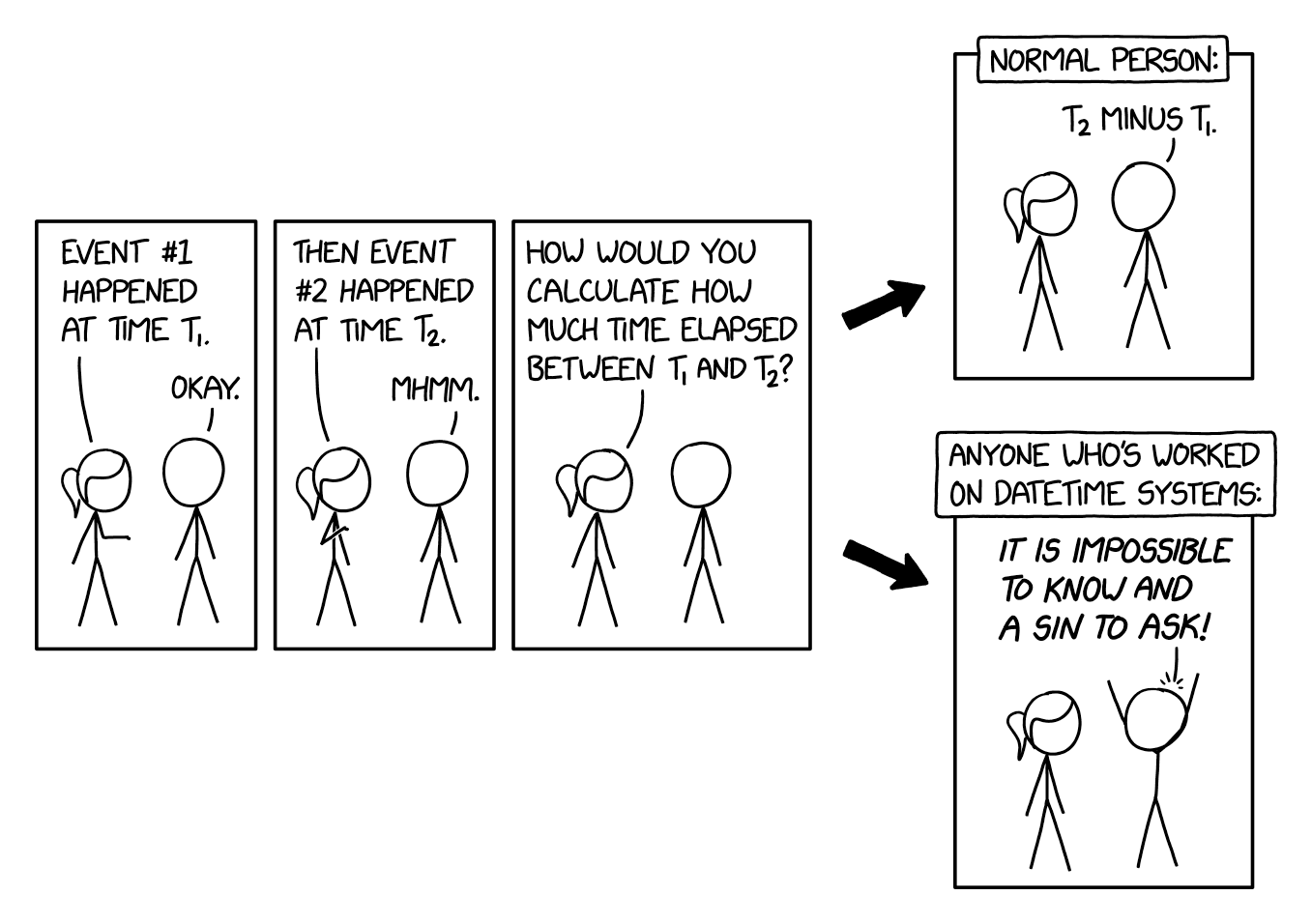We use datediff in sql and let God handle the rest.
"Oh but they're in different time zones" "Oh did you account for if one is in day light savings and other isn't" "Aren't some of these dates stored in UTC and some local?"
Are all problems I do not care about.
